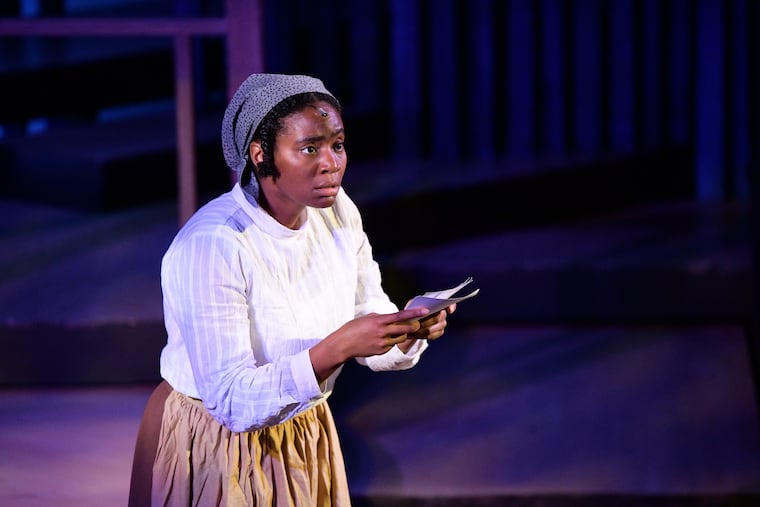Theater Horizon’s ‘The Color Purple’: Original, fiery update to the classic musical
Theatre Horizon opens its rendition of the 1982 novel by Alice Walker that tells the story of Celie, a young black woman, and her journey to self-discovery in the deep corners of the American south.

When it comes to Theater Horizon's musical production of The Color Purple, seeing is believing.
In the theater's fiery rendition of the 1982 novel by Alice Walker, Celie (Jessica M. Johnson), a young black woman, journeys to self-discovery in the deep corners of the American South. The musical, directed by Temple grad and assistant professor Amina Robinson, navigates through Celie's traumatic poverty, depression, incest, and separation from her children and beloved sister, Nettie (Jessica Muse Money).
Set on a small stage with a few wooden platforms and columns depicting dusty and desolate rural Georgia, the show opened with a roaring version of "Mysterious Ways." The cast transformed the space into a full-fledged church service, with bone-chilling singing and a gospel two-step to match. At the end of that number, the cast had to hold their poses briefly as the cheers from audience engulfed the theater.
Dynamics characterized the show. The acting and singing ability of the ensemble was on full display, while quiet gave depth, particularly during Johnson's monologues.
"Everybody loves Shug Avery," Celie declared. And as Shug, Ebony Pullum gave us reasons to. Shug's lead song, "Push da Button," was raunchy and delicious. Pullum dazzled in her sequined, fringed flapper-style dress. She leaned into Shug's sensuality while belting out a song freighted with frank and detailed sex advice.
Celie's intense emotional relationship with Shug is brought to the fore in this adaptation, injecting a contemporary flavor. Also contemporary were much of the dialogue and accompanying stage action, often lightening a show that is so dark for much of its length.
The song at the climax, Celie's "I'm Here," did not get quite the uproarious welcome of the opener, but thanks to Johnson's passionate performance, it was perhaps the most emotionally transcendent moment of the show. "I don't need you to love me," she sang, gazing out into the audience, "I don't need you to love." It earned her a standing ovation.
Though the cast made great use of the small stage, one minor issue interrupted the flow. During the scene where Celie is about to be reunited with her children, some of the cast used the back and side aisles to take the stage instead of using the wings. It seemed like a move better suited to a big musical number than such a tender scene.
This production adds a flair of originality to a sprawling, epic story of many peaks, both of pain and of hope. It reminds us why Walker's novel has touched so many readers. Its great triumph is that the show itself can re-create the book's powerful emotional connection with its audience.